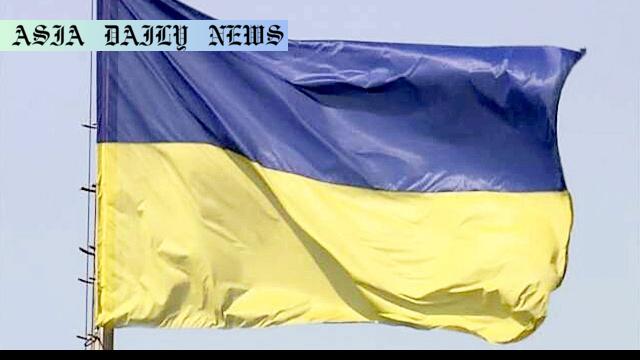Ukraine expert predicts a possible shift in US strategy, with eased sanctions on Russia and calls for concessions from Ukraine.
- US shows interest in disrupting Russia-China relations.
- Ukraine must strategically prepare for concessions during negotiations.
- Russia may offer ceasefire readiness for sanctions relief.

Shifting Dynamics in US Foreign Policy toward Russia and China
The geopolitical dynamics involving the United States, Russia, and China are undergoing significant shifts, as highlighted by Mykola Kapitonenko, a foreign policy expert at Ukraine’s Taras Shevchenko National University of Kyiv. His perspective underscores the United States’ potential interest in disrupting ties between Moscow and Beijing, leveraging its foreign policy tools to achieve wider strategic objectives. More specifically, Kapitonenko suggests that the US might ease pressure on Russia, including lifting some sanctions, to draw Moscow closer to its favor and away from Beijing’s growing influence. This development forms part of a broader geopolitical chess game that could alter established alliances and diplomatic norms between major global powers.
The Strategic Role of Ukraine in a US-Driven Agenda
Ukraine finds itself at the epicenter of this evolving diplomatic strategy. As a country currently embroiled in a war with Russia, Ukraine’s position remains precarious amidst potential shifts in US foreign policy. Kapitonenko notes that the United States may opt for a more pro-Russian approach, encouraging Ukraine to make concessions during negotiations to secure a ceasefire. The expert emphasizes that while Ukraine should prioritize dialogue and diplomacy, it is vital for its leadership to avoid forfeiting control over occupied territories. Such moves may weaken Ukraine’s sovereignty and political leverage in the long term. Furthermore, despite potential ceasefire negotiations, Kapitonenko stresses the critical importance of Ukraine maintaining strong defense capabilities, which can deter future aggression or encroachments on its territory.
Implications of Sanctions Relief on Global Alliances
A noteworthy aspect of Kapitonenko’s analysis centers around the potential easing of sanctions against Russia, which could be part of a broader US strategy to entice Moscow into a more cooperative stance. The prospect of reduced sanctions serves a dual purpose: alleviating some pressure on the global economy and reducing Russia’s incentives to deepen ties with China. However, this approach comes with risks, as it may embolden Russia or send unintended signals about the international community’s commitment to holding aggressors accountable. Any easing of sanctions, therefore, needs to be carefully calibrated to ensure it aligns with the broader goal of fostering stability and peace in the region.
The Weapon and Financial Assistance Ukraine Needs
Kapitonenko’s call to action for Ukraine includes securing continued weapons and financial aid to strengthen its defense capabilities. Such support is integral to maintaining a robust military presence capable of enforcing any ceasefire agreements. The scenario also demands robust intelligence and monitoring mechanisms to ensure compliance from all sides. The expert underlines Ukraine’s need for a long-term strategy that combines diplomacy with deterrence, enabling it to navigate the treacherous waters of international politics without compromising its core national interests. Above all, Ukraine’s priorities must center on achieving sustainable peace, upholding territorial integrity, and safeguarding the well-being of its citizens.
The Role of Ceasefire Negotiations in a Broader Strategy
Ceasefire negotiations, while offering a temporary respite from conflict, also serve as a key component in Ukraine’s broader strategy to secure lasting peace and stability. By engaging in dialogue with Russia, Ukraine can explore avenues for conflict resolution while demonstrating its commitment to diplomatic solutions. However, negotiations must be approached with caution, as Russia’s willingness to make concessions may be contingent upon significant compromises from Ukraine. Addressing such challenges requires a balanced approach, coupling pragmatic decision-making with steadfast adherence to Ukraine’s national principles.



Commentary
Analyzing the US Geopolitical Strategy
The insights shared by Mykola Kapitonenko shed light on a critical juncture in modern geopolitics, where the United States appears to be restructuring its foreign policy approach to address the intertwined challenges posed by Russia and China. As a superpower, the US holds significant leverage in shaping global alliances, and its interest in driving a wedge between Moscow and Beijing reflects a calculated geopolitical maneuver. This strategy, while ambitious, requires careful execution to avoid unintended consequences, such as alienating key allies or emboldening adversaries.
Ukraine’s Role as a Key Strategic Player
As a pivotal player in this equation, Ukraine faces an enormous challenge of safeguarding its sovereignty while navigating the pressures imposed by major global powers. The expert’s emphasis on Ukraine avoiding formal agreements that cede occupied territories highlights the need for a thoughtful and consistent approach to negotiations. Ukraine’s leadership must weigh the benefits of diplomacy against the risks of making immediate concessions that may have far-reaching implications. Building resilience through military and economic strength remains a cornerstone of Ukraine’s long-term strategy, underscoring the importance of international support in achieving these objectives.
The Complexities of Sanctions and Ceasefire Agreements
The discussion around sanctions easing and its implications on global stability brings to forefront a critical aspect of international relations. While reducing sanctions can serve as an incentive for cooperation, it also carries the risk of undermining accountability for actions that violate international norms. Any attempt to broker a ceasefire must, therefore, include safeguards to prevent exploitation by aggressors. This intricate balancing act demonstrates the delicate nature of diplomacy, requiring a cohesive global effort to foster peace without compromising justice or security.